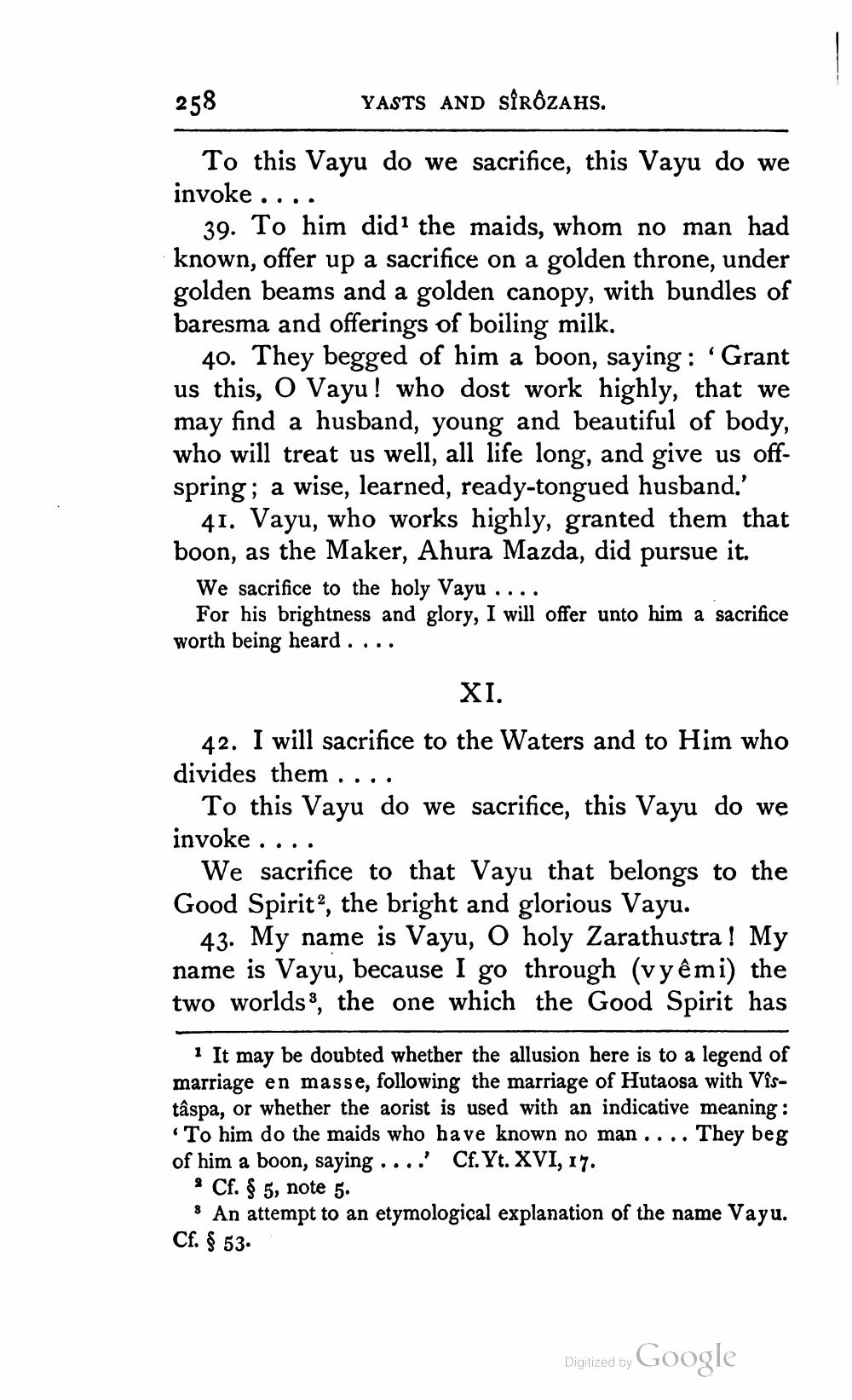________________
258
YASTS AND SÎRÔZAHS.
To this Vayu do we sacrifice, this Vayu do we invoke ....
39. To him didi the maids, whom no man had known, offer up a sacrifice on a golden throne, under golden beams and a golden canopy, with bundles of baresma and offerings of boiling milk.
40. They begged of him a boon, saying: 'Grant us this, O Vayu! who dost work highly, that we may find a husband, young and beautiful of body, who will treat us well, all life long, and give us offspring; a wise, learned, ready-tongued husband.'
41. Vayu, who works highly, granted them that boon, as the Maker, Ahura Mazda, did pursue it.
We sacrifice to the holy Vayu ....
For his brightness and glory, I will offer unto him a sacrifice worth being heard ....
XI. 42. I will sacrifice to the Waters and to Him who divides them ....
To this Vayu do we sacrifice, this Vayu do we invoke ....
We sacrifice to that Vayu that belongs to the Good Spirit, the bright and glorious Vayu.
43. My name is Vayu, O holy Zarathustra ! My name is Vayu, because I go through (vyệmi) the two worlds 3, the one which the Good Spirit has
1 It may be doubted whether the allusion here is to a legend of marriage en masse, following the marriage of Hutaosa with Vîstâspa, or whether the aorist is used with an indicative meaning: "To him do the maids who have known no man.... They beg of him a boon, saying ....' Cf. Yt. XVI, 17.
* Cf. § 5, note 5.
8 An attempt to an etymological explanation of the name Vayu. Cf. $ 53.
Digitized by Google




